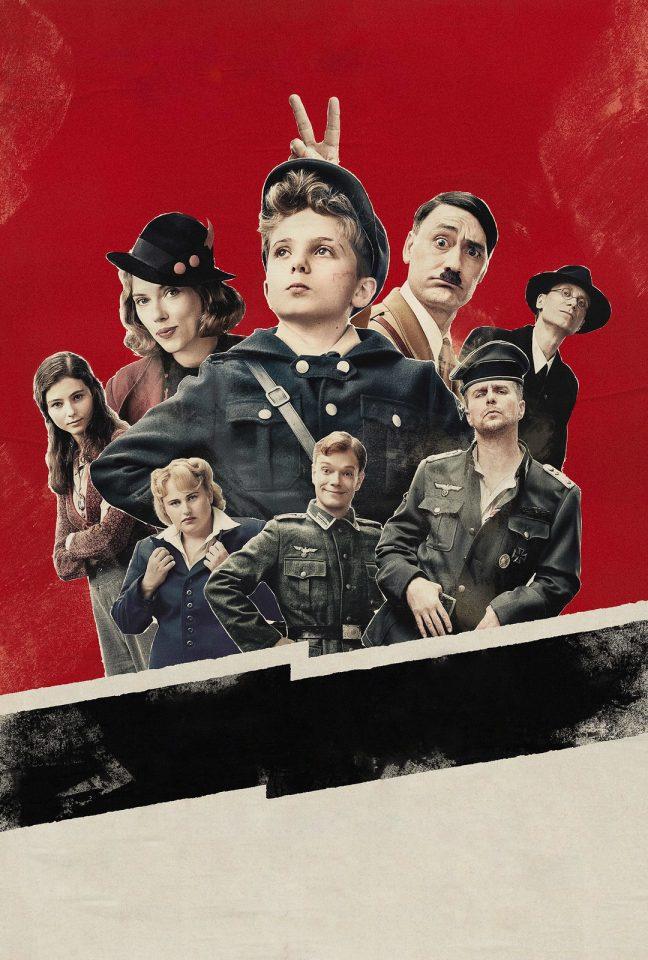Who knew a movie about a young boy and his imaginary friend Adolf Hitler wouldn’t cause major controversy, especially in today’s climate. But director Taika Waititi has created a World War II feature that makes audiences laugh through the first act and fall into silent awe in the second act.
Based on the book, “Caging Skies,” “Jojo Rabbit” takes us inside the mind of a boy from Nazi Germany and his admiration for Hitler, played by Taika Waititi himself. It opens with Hitler pep-talking the kid with a series of “Heil, Hitlers,” which Jojo, played by Roman Griffin Davis, carries onto the street going to Nazi Summer Camp. He salutes everyone he sees to the Beatles’ song, “Komm Gib Mir Deine Hand” (“I Want To Hold Your Hand”).
Of course, we never see the real dictator — only the figment of 10-year-old Jojo’s imagination. He’s portrayed as this kind, fatherly figure, but through the eyes of a boy who’s left fatherless, his dad MIA in the war.
The main reason they present Hitler this way, however, is to deconstruct fascist thinking. Jojo can’t even tie his shoes, and he sees the Third Reich in the way a young American boy would picture Navy Seals. Through him, WWII is almost a fairy tale adventure — there’s even a scene where he sips watered-down soup across from Hitler, gorging on a roasted unicorn.
After an accident in camp, he gets a job posting propaganda around the city and all seems to settle down. That is, until he finds a Jewish girl hiding in his attic. Elsa, played by Thomasin McKenzie, serves as a reality check, teaching him that he’s not the soldier his country tells him to be, or the rabbit the other kids taunt him as.
He is, as she claims, “a ten-year-old kid who likes dressing up in a funny uniform and wants to be a part of a club.”
Next to Tarantino’s “Inglorious Bastards” and Brooks’ “The Producers,” Waititi joins a growing list of WWII satire. But what makes “Jojo Rabbit” different is that it’s from the point of view of a German Nazi, even if he’s just a boy. The movie shows us how propaganda and gossip could sway a common people so in favor of Hitler’s chaos, glorifying the dictator and dehumanizing Judaism.
By contrast, the end of the movie shows how some began to question the lies they were fed. Jojo witnesses his camp buddies go into battle and many other tragedies I won’t spoil for you here. He begins to realize that the world isn’t made of the gods and demons the Nazis preached of — it’s made of people.
Is it controversial? I mean, it’s a comedy about a boy who loves Hitler and hates Jews. Is it necessary? It does show his redemption when he befriends Elsa and casts away the Hitler illusion. Both sides have their arguments, but in the end, “Jojo Rabbit” will leave you with wide eyes and a slacked jaw.


